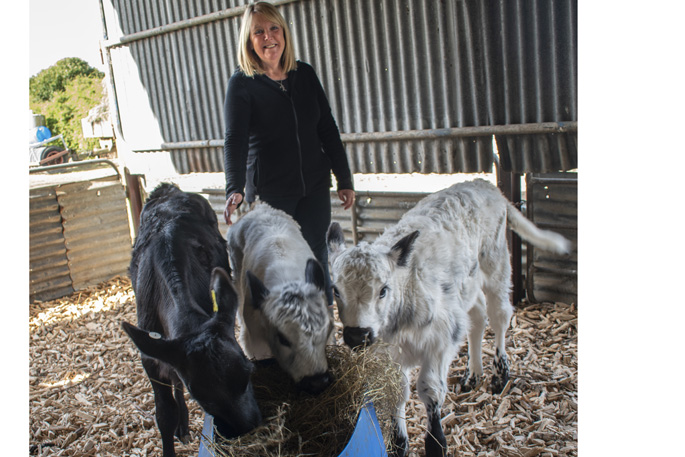For Waikato dairy farmers, Mandy and Peter Paterson, their 2018 organic status certification was simply legal acknowledgement of the beliefs and practices they’d been using for the previous 15 years. And it also means they can sell their milk to Fonterra as organic milk.
Last year they averaged 600kgMS per cow, which is pleasing numbers for an organic operation with 175-180 Friesians.
Autumn calving is approached holistically, using organic principles, homoeopathy, and natural tinctures and remedies. One of Mandy’s go-to mentors is Dr Paul Dettloff, a vet who has helped many dairy farmers on their journey to organics. “Autumn calves have better-developed guts for rich spring grass,” says Peter.
Organically-certified semen for AI is not available, but the Paterson herd is finished by organic bulls. Maternity care starts early with a Contact Care practitioner regularly checking the posture of the pregnant cows.
“Sometimes they need re-alignment, and we do everything to help them achieve an easy birth,” says Mandy.
A careful eye is kept on newborn calves to ensure they feed from their mothers within two to four hours, or Mandy intervenes with a warm bottle of milk. “Every hour after birth without food hinders a calf’s progress,” says Mandy.
After 24 hours, new calves are separated from their mother and fed warmed up, organic colostrum from the herd. Both the mother and calf are treated with homoeopathic remedies for grief and change, and bruising, and the mother is dosed with a tincture to clean the womb out.
“Our calves have water, containing Agrisea, organic hay, humates, kelp and salt, freely available from day one.”
The calves go outside from three to five weeks old, and are not fed meal, but are introduced to the Paterson’s diverse pasture, which has about around 15 species in it. Weaning occurs around three to four months, when they reach 120kg, but male calves go to a rearer at 10 days old.
“Hygiene around the calves is paramount, and we notice our calves are a lot more robust,” says Mandy.
If sick, they are treated homoeopathically firstly, and if required, by a conventional vet, even if it means the animal’s organic status is compromised and it then has to leave the farm.
“Organic farming is a constant balance between what is good for the planet, the animals and the human, and profit and production,” says Mandy.
It’s a way of life and a big commitment trying to produce chemical-free food – but Mandy and Peter hope they are playing a part in people becoming healthier through diet.



0 Comments
Leave a Comment